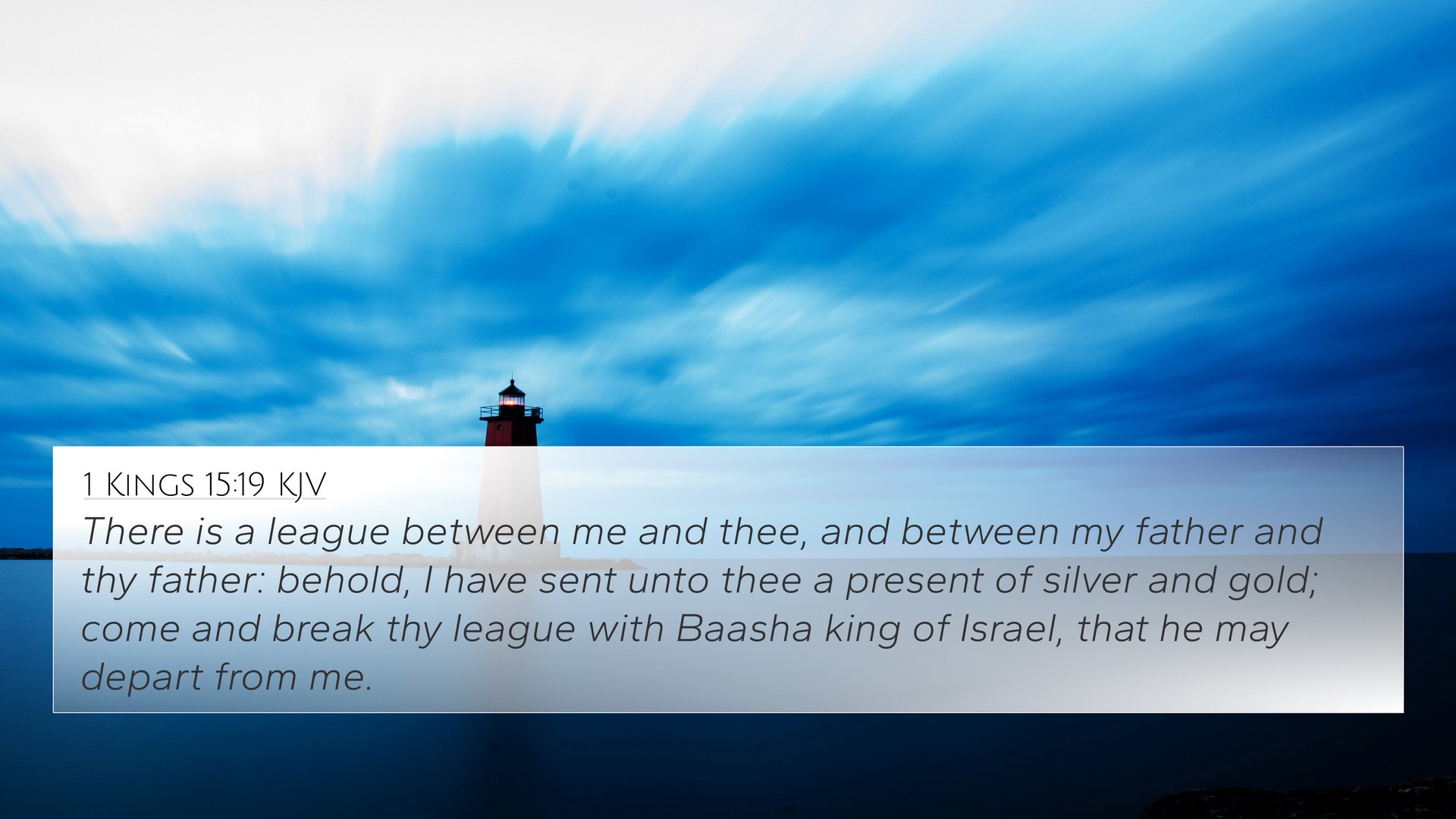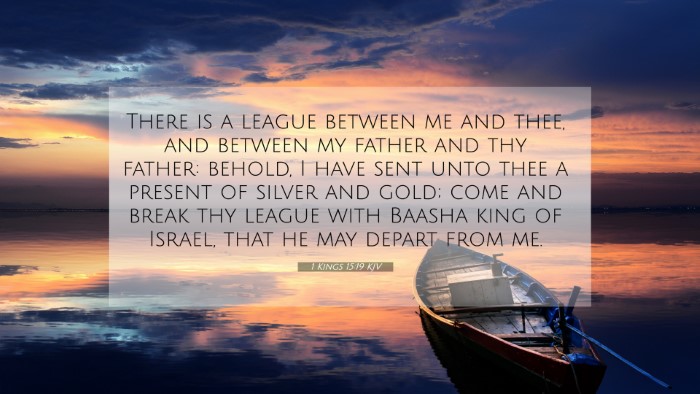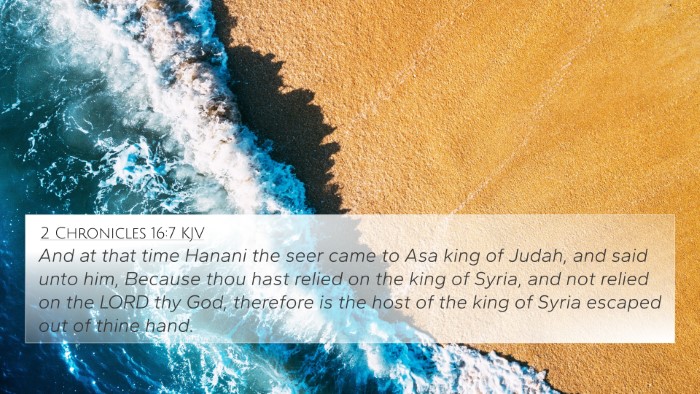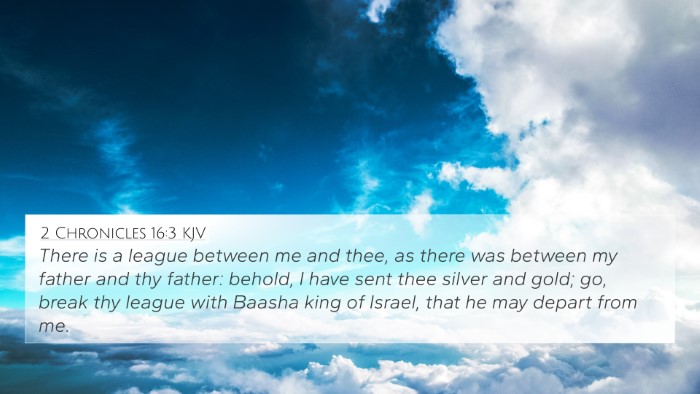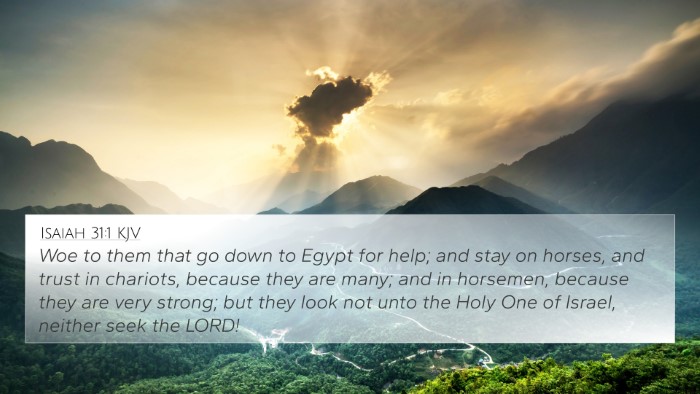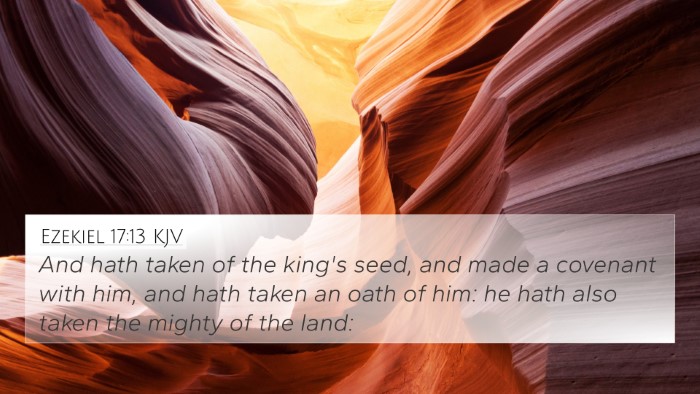Understanding 1 Kings 15:19
Verse: "And he said, Let there be a treaty between me and thee; and between my father and thy father: behold, I send thee a present of silver and gold; come and break thy league with Baasha king of Israel, that he may depart from me." (1 Kings 15:19)
This verse highlights a pivotal moment in the political landscape of ancient Israel, illustrating the intricate relationships and alliances between its kings. The character of Abijah, son of Asa, reaches out to Benhadad, king of Syria, seeking a strategic alliance against Baasha, the king of Israel.
Commentary Insights
This verse has been examined by various scholars throughout history, and their insights are beneficial for a deeper understanding.
-
Matthew Henry:
Henry emphasizes the political maneuvering in the ancient Near East, noting that Abijah's approach to Benhadad represents a strategic choice based on the need to counter Baasha's growing power. This action suggests the importance of alliances in securing national stability.
-
Albert Barnes:
Barnes discusses the implications of Abijah's request, underscoring a spiritual failure by seeking alliances with pagan nations rather than relying on God. The verse reflects the ongoing struggle between staying faithful to Yahweh and engaging in political alliances that may compromise religious integrity.
-
Adam Clarke:
Clarke points out the significance of the gifts sent by Abijah, interpreting them as an attempt to win the favor of Benhadad to achieve political goals. He also highlights the underlying tension between Israel and Judah, further elucidating the complexities of inter-Israelite relations during this historical period.
Cross-References
To grasp the full context and implications of this verse, here are several important connections to other scripture:
- 1 Kings 15:16-18: Discusses the hostility between Asa of Judah and Baasha of Israel, laying the groundwork for the need for alliances.
- 2 Chronicles 16:7-9: Offers an account of Asa’s reliance on Benhadad, reinforcing the theme of seeking foreign aid rather than divine intervention.
- Isaiah 30:1-3: Warns against seeking alliances with Egypt instead of trusting in God, echoing the relationship dynamics in 1 Kings 15:19.
- 2 Kings 15:37: Shows the ongoing conflict between Israel and Judah, illustrating the prolonged nature of political struggles within Israel.
- 2 Samuel 5:11-12: Details David’s alliances formed during times of national consolidation and territorial expansion.
- Proverbs 21:30: Suggests that no wisdom, no understanding, and no counsel can prevail against the Lord, reinforcing the spiritual implications of alliances.
- Jeremiah 9:4: Comments on betrayal and untrustworthy alliances, calling attention to the need for discernment in political relationships.
Thematic Connections
The themes of political alliances, trust in God versus foreign cooperation, and the consequences of such choices are prevalent throughout the Scriptures. They offer a rich ground for thematic Bible verse connections:
- Trust in God (Proverbs 3:5-6) vs. Trust in military alliances (Psalm 20:7).
- Faithfulness to God’s covenant (Deuteronomy 7:2) when considering foreign relations.
- Judgment against nations for breaking God's commandments (Jeremiah 5:29).
Conclusion
1 Kings 15:19 serves as a significant point of intersection between political intrigue and spiritual faith. It underscores the human tendency to seek help from external powers rather than relying on divine providence. Understanding these connections aids in grasping the complexities present in both the Old and New Testaments.
The reflections on this verse, combined with its cross-references and thematic ties, provide a comprehensive framework for engaging in comparative Bible verse analysis and for utilizing tools for effective Bible cross-referencing. By examining such interconnected themes, one can better understand the overarching narratives within the Biblical texts.
